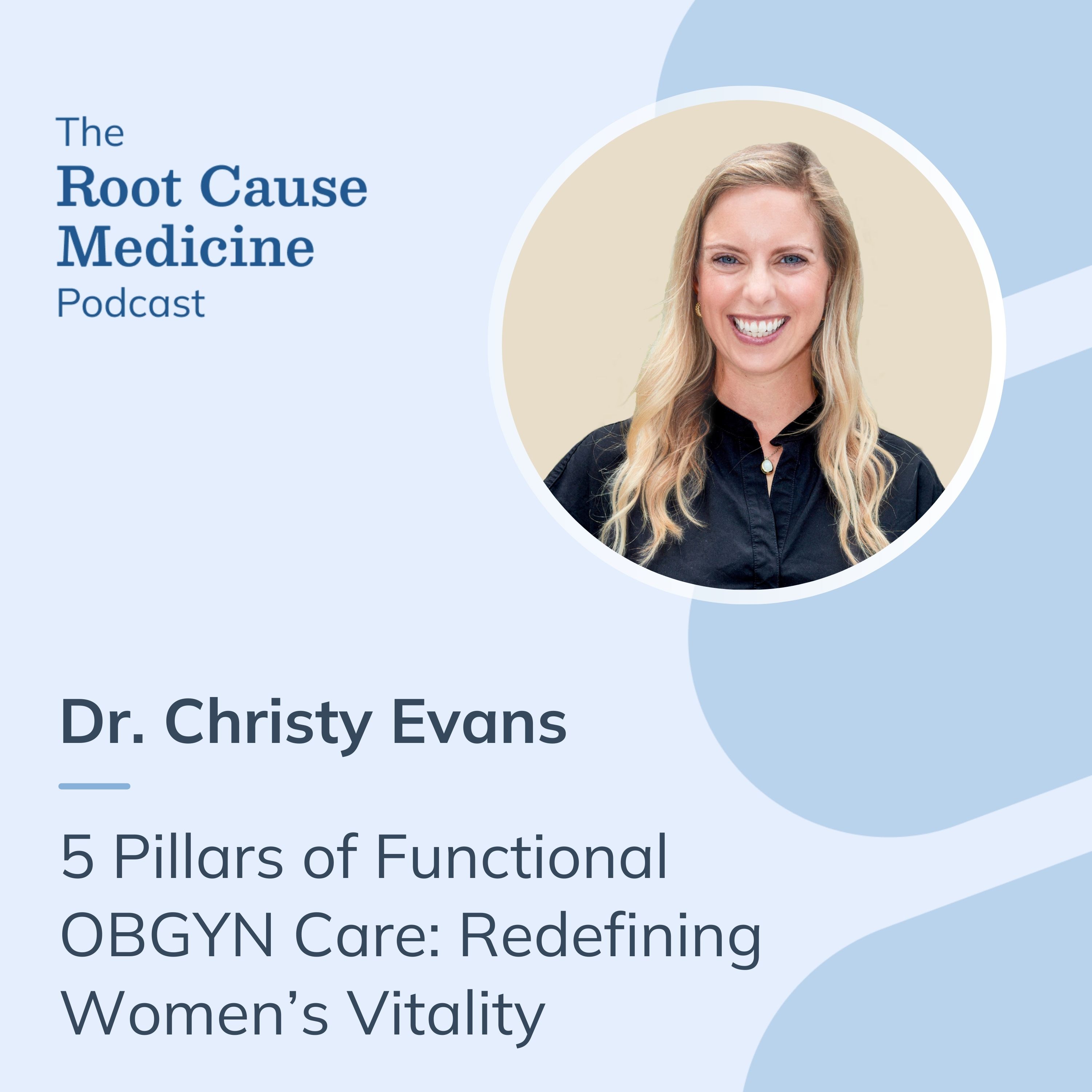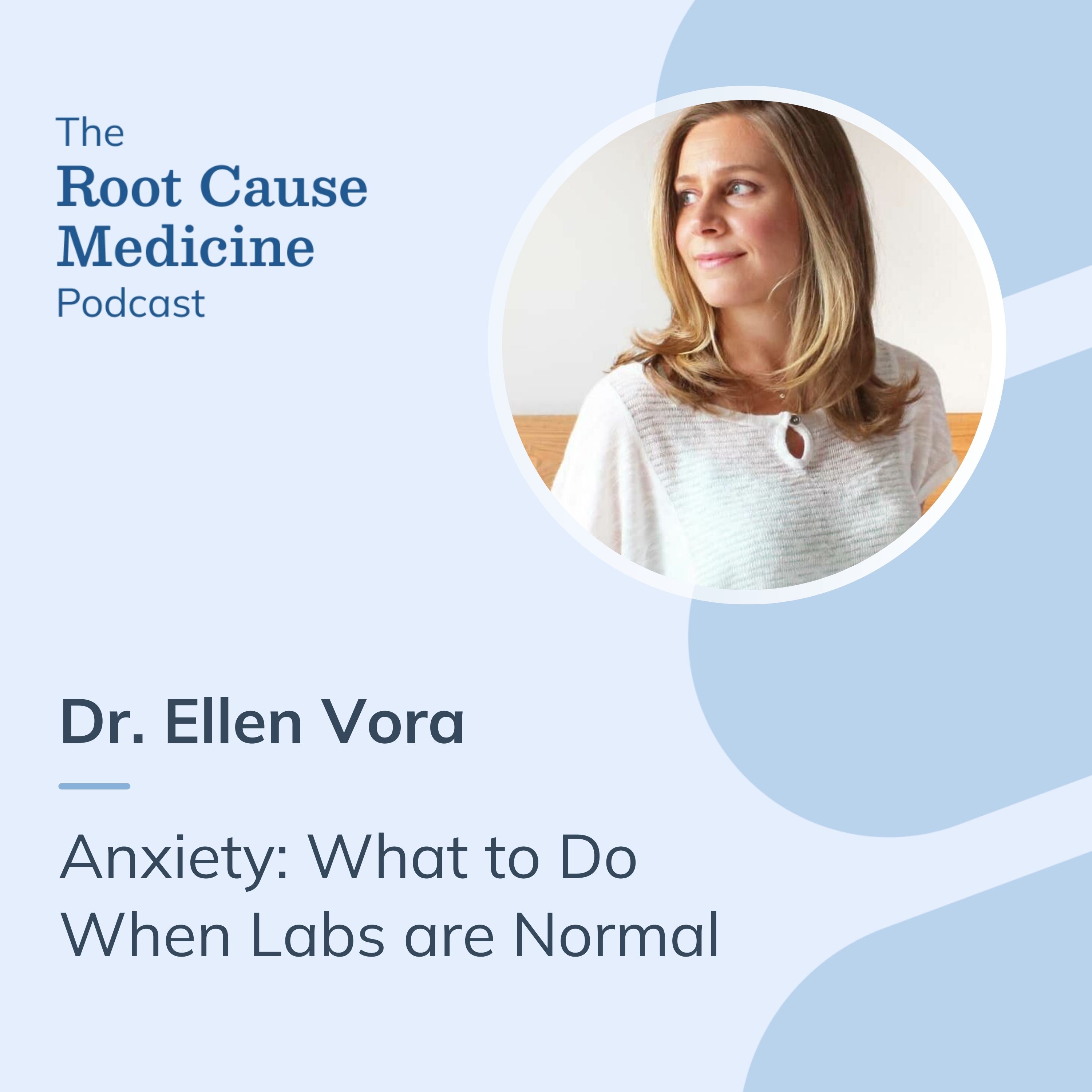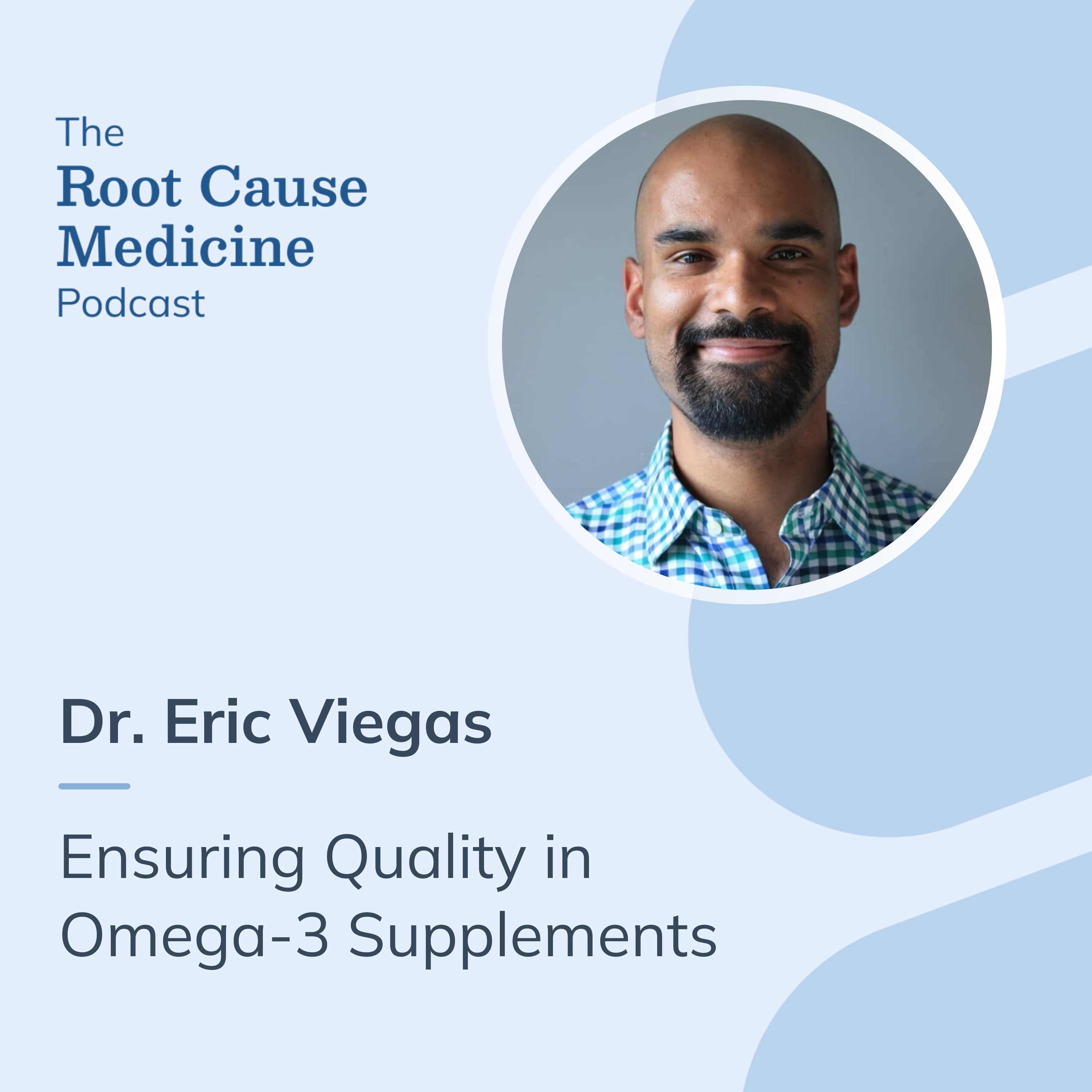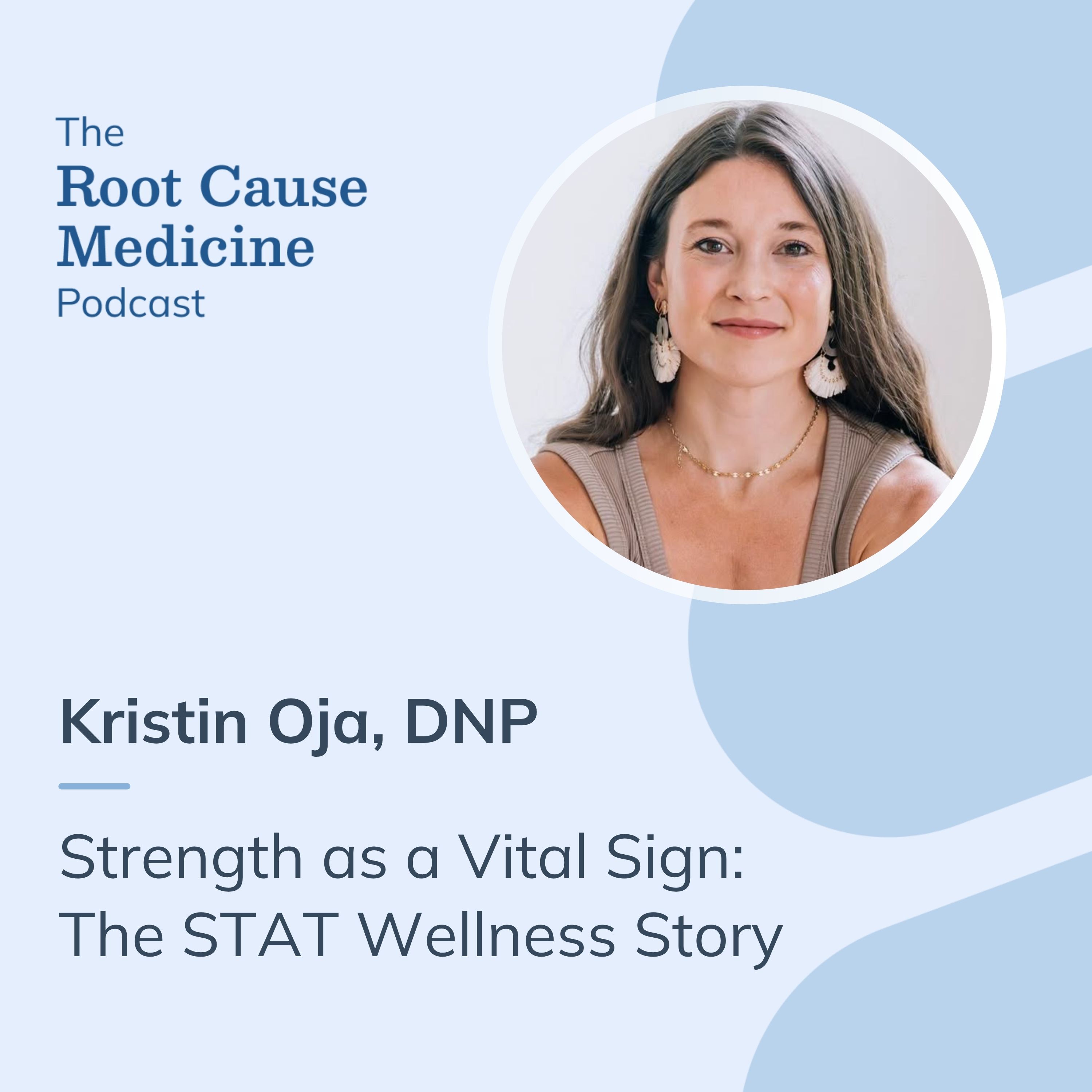High blood pressure, also referred to as hypertension, is a prevalent health condition that impacts nearly half of American adults. Defined as systolic blood pressure greater than 130 mm Hg and diastolic blood pressure greater than 80 mm Hg, over 60 million adults in the US self-report taking antihypertensive medications that may be effective but do not address the underlying cause of the condition.
As a leading risk factor for cardiovascular diseases (CVD) like heart attack, stroke, and heart failure, patients with hypertension may benefit from more than medications. The growing number of people’s lives influenced by this chronic condition highlights the need for comprehensive hypertension management. Recently, there has been an increasing adoption of using personalized treatment protocols, such as those in root cause medicine, to complement traditional antihypertensive therapy to support long-term patient outcomes.
[signup]
Overview of Antihypertensive Therapy
Antihypertensive therapy is considered the mainstay of traditional elevated blood pressure management. This category of prescription drugs consists of several classes, including angiotensin-converting enzyme (ACE) inhibitors, angiotensin II receptor blockers (ARBs), beta-blockers, calcium channel blockers, and diuretics. These medications may help reduce blood pressure through mechanisms such as relaxing blood vessels, decreasing overall blood volume (hypervolemia), and lowering cardiac workload.
Consistent administration, also known as adherence, is vital to decrease the chance of adverse cardiovascular events and support systolic and diastolic blood pressure improvements. Despite their effectiveness, pharmacotherapy targeting blood pressure can also have unwanted side effects, including fatigue, dizziness, and electrolyte imbalances. This balance of effectiveness, paired with side effects, calls for a more patient-centric approach to hypertension care.
Root Cause Medicine Principles in Hypertension Care
Root cause medicine is an individualized approach to patient care that addresses the root causes of disease rather than treating symptoms. From a patient-centric perspective, root cause medicine considers a person’s overall health and well-being, including genetic factors and environmental exposures. Specifically for hypertension management, practitioners can look beyond prescriptions alone to use tailored methods and lifestyle modifications–such as lab testing, nutrition, stress management, movement, and dietary supplements–to help patients manage their blood pressure.
Integrating Root Cause Medicine with Antihypertensive Therapy
Implementing the use of root cause medicine into a comprehensive care regimen for patients with hypertension may support patient outcomes. Root cause medicine can help manage the side effects of antihypertensive drugs, enhancing patient adherence and quality of life. Research has shown the potential benefits of combining root cause (functional) medicine with antihypertensive therapy for supporting blood pressure control.
A recent review found that a comprehensive lifestyle intervention, including dietary changes, physical activity, and stress reduction techniques, led to significant blood pressure reductions among hypertension participants. Another study showed that a combination of dietary changes and stress management techniques as first-line therapy to help manage hypertension in adulthood was as effective as medication in supporting blood pressure levels. Practitioners can address the root causes of hypertension and provide comprehensive care for the hypertensive patient population. While root cause medicine can complement traditional treatments for hypertension, it is important for patients to work with an interdisciplinary care team.
Dietary Considerations and Supplements
For patients with hypertension, nutrition plays a pivotal role in its progression. In both traditional and root cause medicine treatment protocols, there are cardioprotective diets–all emphasizing common principles of increasing dietary fiber, lowering sodium intake, optimizing saturated fat intake, and increasing nutrient-dense foods. Dietary planning is highly individualized, so practitioners should consider a patient’s needs, goals, and potential interactions with their medication regimen.
The Dietary Approaches to Stop Hypertension, also known as the DASH Diet, was initially developed to help manage hypertension. This dietary model prioritizes fruits, vegetables, whole grains, and lean proteins while limiting sodium, unhealthy saturated fats, and refined sugars. Studies have shown that the DASH Diet can support blood pressure management as well as the overall risk of death from CVD. A variation of the DASH Diet is called the MIND D
iet, combining principles of the Mediterranean and DASH Diets. This nutritional recommendation emphasizes vegetables, nuts, healthy oils, fish, and lean meat.
Incorporating specific nutrients into the diet through nutrition or dietary supplements, such as omega-3 fatty acids and certain vitamins and minerals, can also support blood pressure management. Omega-3 fatty acids, found in fish oil supplements or fatty fish like salmon and mackerel, have been shown to support healthy blood pressure levels. Magnesium-rich foods like spinach, almonds, and avocado can help support blood vessel relaxation and healthy blood pressure. Dietary sources of potassium, such as bananas, oranges, and potatoes, can help balance the effects of sodium and support blood pressure regulation.
Stress Management and Its Impact on Hypertension
Stress management plays a crucial role in hypertension management, as stress can contribute to elevated blood pressure levels. Chronic stress activates the body's "fight or flight" response, leading to increased heart rate and blood pressure. Over time, this can put a strain on the cardiovascular system and contribute to the development of hypertension.

Root cause medicine emphasizes the importance of stress management in optimizing blood pressure. Stress reduction techniques such as mindfulness meditation, yoga, and biofeedback can help support blood pressure management by reducing stress levels. Research has shown that these techniques can support cardiovascular health and reduce the risk of heart disease and stroke.
Mindfulness meditation is an effective stress management technique that involves focusing on the present moment and cultivating a non-judgmental cognizance of thoughts and feelings. Studies have shown that mindfulness meditation can support healthy blood pressure and cardiovascular health, among other benefits including reduced anxiety, depression, and perceived stress.
Physical Activity as a Pillar of Hypertension Management
Regular physical activity is essential for managing hypertension, as it can support healthy blood pressure and cardiovascular health. Practitioners often recommend a combination of aerobic exercise, strength training, and flexibility exercises customized to the individual patient's needs and abilities. Combining physical activity with medication can have synergistic effects, further supporting blood pressure management. Another study found that combining aerobic exercise with medication was more effective in supporting healthy blood pressure than medication alone.
Exercise helps support healthy blood pressure by promoting blood vessel function, reducing inflammation, and supporting weight management. It also helps reduce stress levels and improve mood, contributing to overall well-being. In addition, studies have shown that increasing exercise as a part of a multidimensional integrative medicine protocol supported weight management and reduced 10-year cardiovascular risk.
Monitoring and Adjusting Treatment
Practitioners use specialized lab testing to determine individualized treatment regimens for patients with cardiovascular disease. Tests such as those that evaluate lipids, inflammatory markers, oxidative stress markers, genetics, and more can provide valuable insights into a person’s risk factors for hypertension and help formulate treatment plans accordingly.
Regular monitoring and follow-up are essential for assessing the effectiveness of combined treatment approaches. Using regular lab testing to monitor specific cardiovascular biomarkers can facilitate the adjustment of treatment plans based on patient progress, potentially leading to antihypertensive dosing changes and/or the addition of integrative therapies. By closely monitoring patients, healthcare providers can ensure that patient-centered treatment goals are met and adjust interventions as required.
[signup]
Key Takeaways
Hypertension is a chronic condition that currently impacts millions of patients in the United States. As incidence continues to increase, the paradigm of hypertension management needs to be refreshed to a patient-centric approach.
While antihypertensive medications are a part of the treatment protocol, integrating complementary modalities such as diet, physical activity, supplements, stress management, and specialized lab testing, root cause medicine can help patients to support optimal blood pressure levels and reduce their risk of long-term cardiovascular complications.
Working in a collaborative interdisciplinary team, including a root cause or functional medicine practitioner, patients can use these multi-faceted, personalized medicine strategies to improve their quality of life.









.jpg)


%201.svg)








.png)